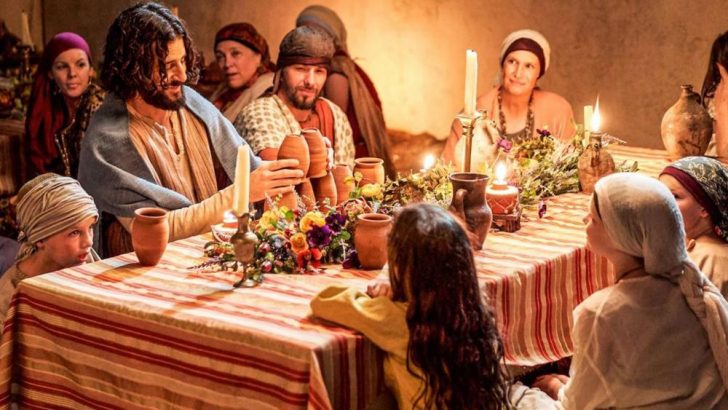The View
During the lockdown, many people turned to Amazon, Netflix and good old-fashioned DVD box sets for entertainment. But it is remarkably difficult to find series that are family-friendly, particularly if you have older children and teens.
Family-friendly films or series with religious themes which are well-made are even rarer. As a result, I did not have high expectations for a new series called The Chosen, which is about the life of Christ. Yet after just a few episodes, I am hooked.
Dallas Jenkins, the creator, director and co-writer of the series, was a mainstream movie producer through what might be called the Hollywood system, but none of the films were massive successes.
He then produced a short film, The Shepherd, for his evangelical church. A company called VidAngel (about which more later) was looking for original content to stream and suggested that a pilot be aired on Facebook.
The interest was huge, right across US Christian denominations. A television series with high production values is costly to make. Amazingly, $10.3 million (€8.78m) was raised from 15,000 investors to make the first four episodes of the series through crowdfunding.
Access
The Chosen crowd-funding process has now raised over $20 million (€17.05m) which means that season two is now underway. While you can buy DVDs of the show in the US, the primary way that people access it is through an app. The Chosen | Official Trailer HD allows you to stream the first episode of the show for free. Paying for a Pay-It-Forward package via the app for as little as $14.99 not only gives the purchaser lifetime access but also allows others to watch it for free.
Crowd-funding is an innovative way of side-stepping conventional media outlets such as television stations or the biggest streaming platforms, which are often indifferent to or actively hostile to religious material. The series has been viewed by nearly 50 million people in 180 countries and has been translated into over 50 languages.
The series is uplifting without being pious. It’s a fresh and original take on the Gospels, which allows you to see Jesus through the eyes of the women and men who encounter him and whose lives are transformed as a result.
Jonathan Rhoumie, who plays Jesus, has a wonderful warmth and humour that is very far from Robert Powell’s famous blue-eyed interpretation of Jesus in Franco Zeffirelli’s 1977 Jesus of Nazareth television series.
Mr Powell deliberately almost never blinked during the filming and dark blue eyeliner was used to emphasise the intensity of his gaze. The portrayal of Jesus in The Chosen is closer to the lighter moments of Mel Gibson’s The Passion of the Christ. A minor spoiler if you have not seen the latter – there is a scene where Jesus (Jim Caviezel) makes a table with legs, which seems a bit odd to his mother Mary, used to reclining to eat her food.
It is a tender moment showing the love between mother and son. While there are similarities to these gentler moments of The Passion of the Christ, Jonathan Rhoumie, who plays Jesus in The Chosen, has a very different screen presence to Jim Caviezel. What Mr Caviezel and Mr Rhoumie share is that unlike Robert Powell, they are both Catholics who take their faith seriously and both see portraying Jesus as a way of introducing the Lord to people who would not necessarily encounter him in any other way.
There is also a secondary aim of introducing him to people who have become numbed to or jaded about the Christian story.
The enormous interest in this series shows that there is a real demand for quality religious programming but also for family-friendly material. VidAngel, the company I mentioned earlier, originated as a filtering service, where they allowed people to watch programmes or films with profanity or sexualised scenes removed.
This aspect of their business has resulted in massive lawsuits from film and television companies. VidAngel insisted that it was not pirating the material and that it was legal under US legislation called the Family Movie Act.
They also said that they were simply making the material available to viewers who would never otherwise watch it.
There is an obvious gap in the market for people who want to watch popular series without the parts that they find offensive”
Nonetheless, a US District Court has ordered it to pay $62.4 million (€53.2m) to Disney, Fox, and Warner Bros. for streaming hundreds of movies on its service without permission. VidAngel maintains that it repeatedly sought permission.
Whatever the rights and wrongs of the court case, there is an obvious gap in the market for people who want to watch popular series without the parts that they find offensive. Why are the entertainment media so hostile to that idea? If a series on the life of Christ can reach 50 million people, it should be possible to provide more family-friendly material of a secular nature, too.


 Breda O'Brien
Breda O'Brien This is a scene of Jesus at a wedding in episode five of The Chosen.
This is a scene of Jesus at a wedding in episode five of The Chosen. 